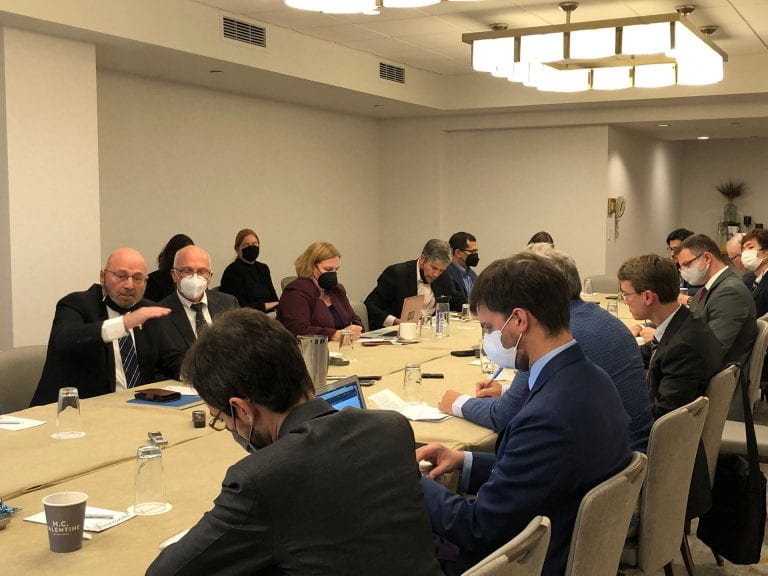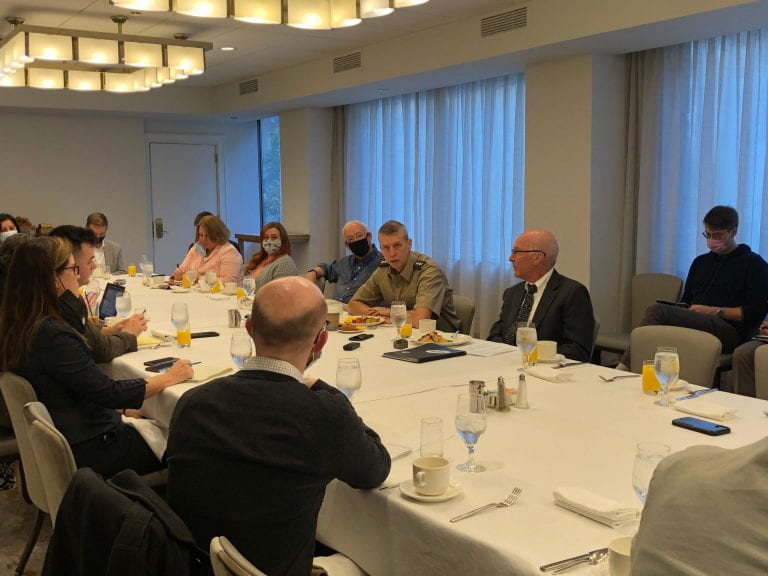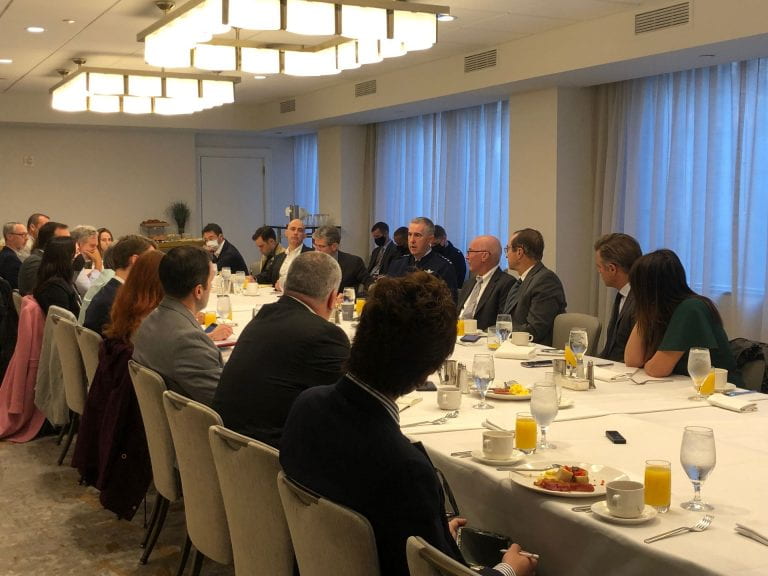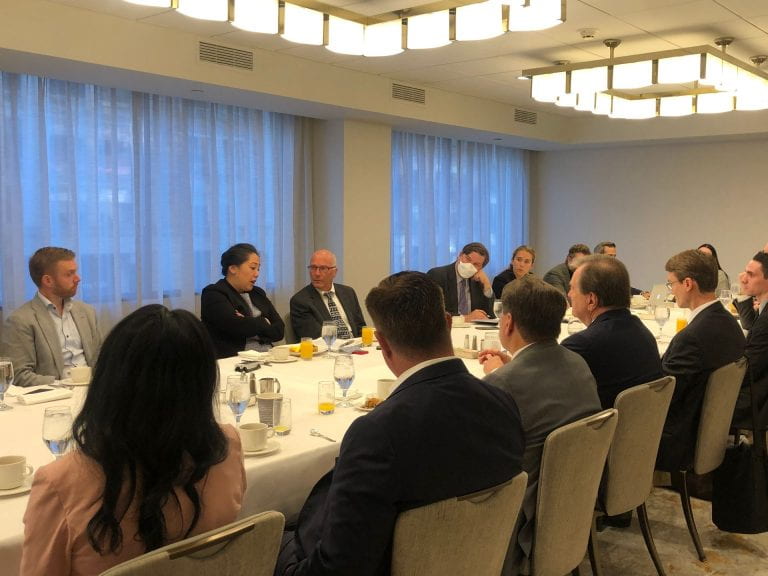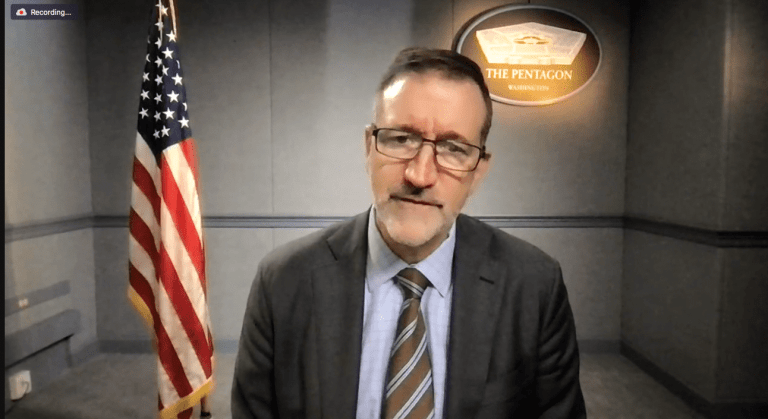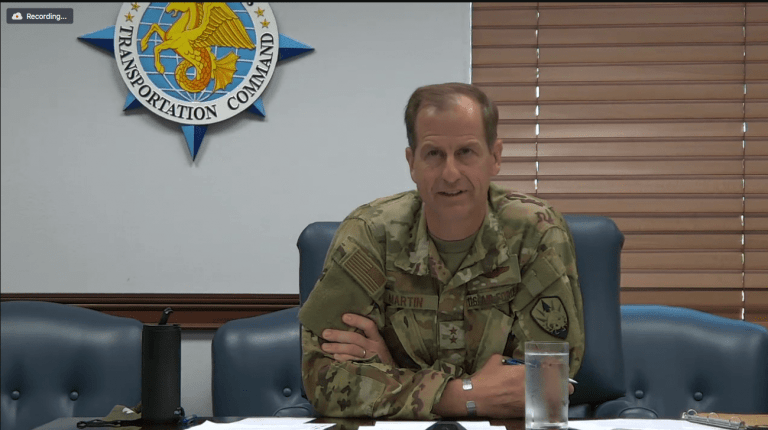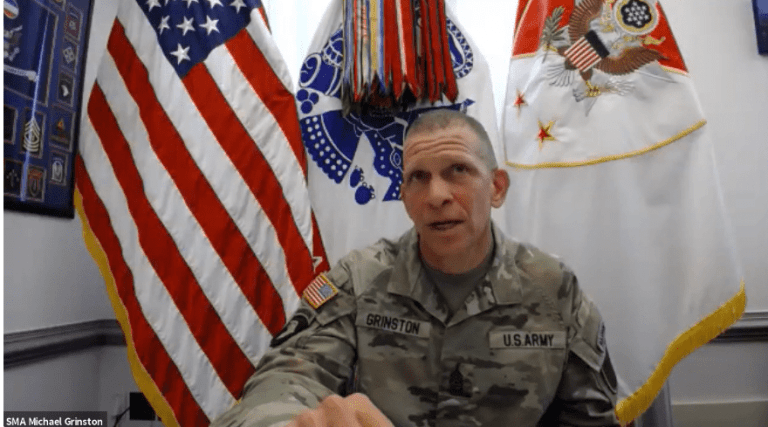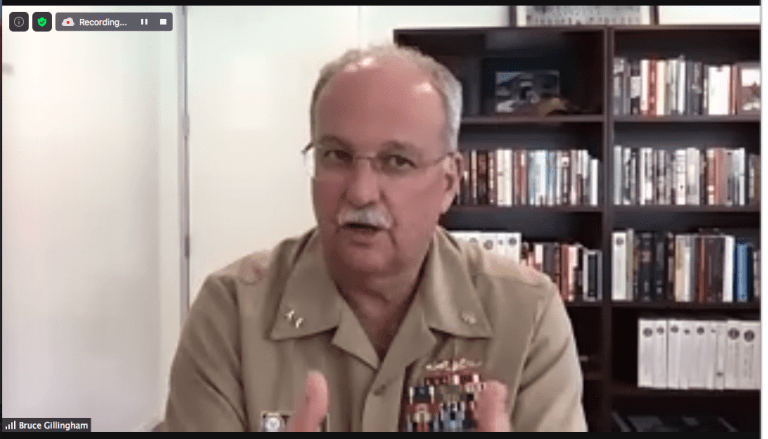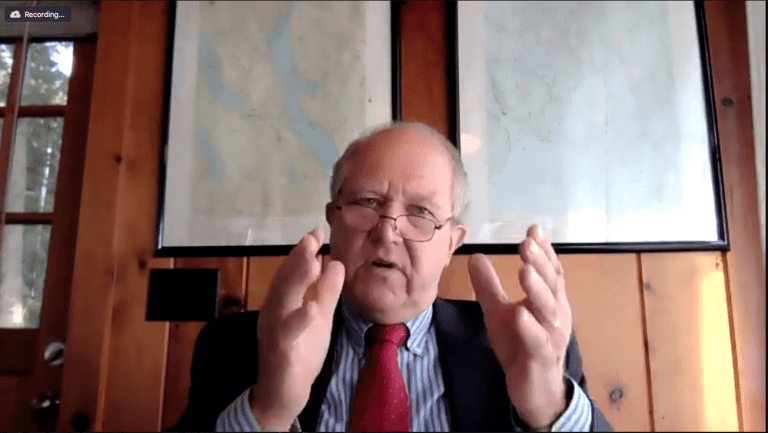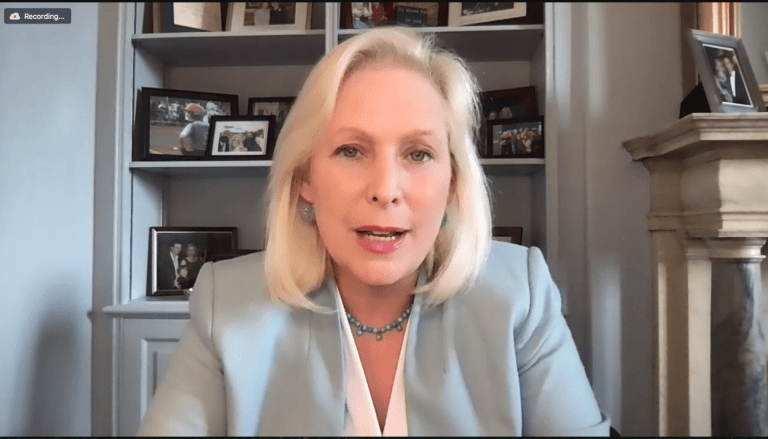Defense Writers Group
November 16, 2021
Moderator: Greetings and welcome to a Defense Writers Group special afternoon session. We have a really extraordinary guest today, the Australian Ambassador to the United States, the Honorable Arthur Sinodinos. Sir, thank you for joining us. It’s great to have you here at such an important time.
As always, this discussion is on the record but there will be no rebroadcast of audio or video. I’ll open with the first question as is our standard and then I’ll go around the room.
Mr. Ambassador, I was in the Pentagon just last week actually for meetings and as chance would have it I walked down the ANZUS Corridor, and I noticed that this is the 70th anniversary of the Australia-New Zealand-US Treaty founded on shared principles. It’s certainly stood the test of time.
But the news today is something very, very different. Not a treaty but an agreement among Australia the US and UK.
If you could, help us set the stage, sir. How did we get to this moment and where do we go from here in relations between and among our countries?
Defense Writers Group
November 10, 2021
Moderator: Good morning everyone. Welcome to this Defense Writers Group session. I’m incredibly honored that we’re having as our guest speaker General Hokanson, the Chief of the National Guard. The General and I were speaking downstairs, it’s been five years since a National Guard Chief has met with the Defense Writers group and I can’t imagine a more timely or valuable speaker for us to have today.
I thank all of you for joining us today. There’s been some questions, we will have some events on Zoom, but we’re going to try to be back in person as much as possible because the poll that Chloe and I conducted in June when I took over as Director, people wanted the camaraderie and the in-person, so it’s great that you’re here. But if you have colleagues who are still uncomfortable traveling, tell them we will be doing more Zoom events as well.
General, it’s truly an honor to have you here today. Thank you so much.
Defense Writers Group
October 28, 2021
Moderator: Welcome to this Defense Writers Group. I’m Thom Shanker, the Director of the Project for Media and National Security. I can’t tell you how honored I am to have as our first in-person guest for Defense Writers Group General John E. Hyten, Vice Chairman of the Joint Chiefs of Staff.
As most of you know when I got this job in June I did a poll and everybody said that when we come out of pandemic there’s a real desire to get the group back together in person for the conversation and contact and camaraderie. So General, it’s so great to have you here today.
General Hyten: Thank you very much.
Cyber Media Forum
October 20, 2021
Moderator: Good morning, everyone. If I could call this meeting to order. I’m Thom Shanker. I’m the new Director of the Project for Media and National Security and I’m honored to welcome you to this very special Cyber Media Form that is co-hosted through the generosity of the Howard Baker Forum. We appreciate your support. This is our first in-person breakfast in a year and a half, so if we want to have reasons for optimism that our country and the world is pulling out of the pandemic I look around this room and feel very, very good about that.
I can’t imagine a more exciting or substantial person to have as our first speaker than Mieke Eoyang. She is the Deputy Assistant Secretary of Defense for Cyber, which means she is the senior cyber policy official over the entire Defense Department and the military. That’s a heck of a job.
We’re experimenting with a new format, so I will ask our guest to give some opening comments, sort of set the cyberspace for us and then we’ll move to questions.
This format is on the record, but not for broadcast – either audio or video. Our pitch to the Pentagon, State, NSC, the IC, is that we’re the anti-press room. We’re Geneva, Switzerland. We all sit, we speak calmly, so we don’t allow anything other than word stories, either print or on your web sites. I’m sure everybody will agree with those rules.
With that, the floor is yours.
Defense Writers Group
October 8, 2021
Moderator: Good morning everyone, and welcome to what I know is going to be a terrific session of the Defense Writers Group. I’m Thom Shanker, Director of the Project for Media and National Security at George Washington University and we have a terrific and timely guest today. It’s Richard Kidd. He’s the Deputy Assistant Secretary of Defense for Environment and Energy Resilience, and as you know a very timely and important report came out just yesterday.
Because the report just came out yesterday I’d invite Mr. Kidd to kind of open the session today with sort of an intro and sketch the landscape for us. So Mr. Kidd, the floor is yours, sir.
DepSec Kidd: Thank you, and good morning everyone. It’s a pleasure to be here today and talk to you about the Department of Defense’s Climate Adaptation Plan which is a very significant document in terms of charting the Department’s way forward in regards to climate change adaptation.
Defense Writers Group
October 7, 2021
Moderator: Good afternoon and welcome. I’m Thom Shanker. I’m the Director of the Project for Media and National Security at George Washington University and I’m really honored to have as our guest for this Defense Writers Group Major General Corey J. Martin of the Air Force who serves as Director of Operations, J3 of course, of U.S. Transportation Command.
General once again, sir, welcome. We’re really honored to have you here today for our discussion.
Maj. Gen. Martin: Thom, thank you. It’s an honor to be with you. I appreciate you assembling the group to hear about TRANSCOM’s part of the new operation. Thank you.
Defense Writers Group
September 30, 2021
Moderator: Good morning, everyone. I’m Thom Shanker, Director of the Project for Media and National Security at George Washington University, and I’m very honored to have as our guest speaker today for this Defense Writers Group session the Sergeant Major of the Army, Michael A. Grinston, whose issues and portfolio and responsibilities could not be more important in the world in which we find ourselves.
As always, I’ll open with the first question. I have a couple of emails from two or three of you who want to ask, otherwise, please drop me a note in the direct chat and I’ll call on people in the order that you sign up. So SMA Grinston, welcome to our session.
SMA Grinston: Thanks, Thom. Thanks for having me.
Defense Writers Group
August 19, 2021
Moderator: Welcome everyone, especially in this incredibly busy news cycle. We’ll keep an eye out for late arrivals given the Pentagon press conference this morning and filing.
Welcome to our session of the Defense Writers Group. We are so honored to have Rear Admiral Bruce L. Gillingham, the Surgeon General of the United States Navy. I’m Thom Shanker, the Director of the Project for Media and National Security. And as many of you know, I conducted a poll early after I took over this job and one of the interesting findings was how many of you requested more of these sessions not only focusing on operations and policy, but more on health of the force and personnel matters. So Admiral, we are really honored that you are the first member in our expanded agenda program, sir.
RADM Gillingham: Thank you, Thom. It’s a pleasure to be here.
Defense Writers Group
July 29, 2021
Moderator: Good morning, and welcome everyone to this Defense Writers Group. I’m Thom Shanker, the new Director of the Project for Media and National Security at George Washington University, and we are both honored and happy with the timing to have Mr. John F. Sopko with us today. He is the Special Inspector General for Afghanistan Reconstruction. The timeliness of this meeting is superb following President Biden’s withdrawal orders and of course the SIGAR’s quarterly report, the embargo lifted just last night.
Defense Writers Group
July 15, 2021
Moderator: Senator, it’s a great honor to have you. Your staff said you’re on a very tight timeline, so we’ll go ahead and jump in, if that’s okay.
You’ve been active across a broad agenda of military and national security issues, most recently working on important burn pit legislation and equally so on a resolution to reform the War Powers. But I do want to open obviously with the issue you’ve been pressing for more than a decade, reforming the UCMJ. And you’ve certainly gained attention and a lot of traction in recent months.
The SecDef, Chairman and others are supporting you but not fully in the way you want to reform UCMJ. So the question is, given your successes, ma’am, what’s the way ahead? Where does your initiative go from here? What are your next steps?

